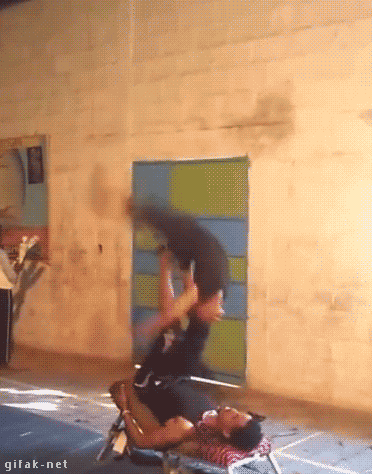Word of the Day
Couth (n./adj., KOOTH)
Refinement or sophistication, or something marked by those things. People who sip wine. A Rolex. A Ferrari engine. Haute couture.
Refinement or sophistication, or something marked by those things. People who sip wine. A Rolex. A Ferrari engine. Haute couture.

GymnasticsTwirlingAcrobaticsImpeccable timingKick and catchPerfectly looping gifsJugglingExerciseTaking your life in your hands
The Atlantic's cover story for September is a must-read long article that examines the effects of colleges' increasing attention to words and ideas that are disliked. This isn't your standard "PC is unhealthy" article. Instead, Greg Lukianoff and Jonathan Haidt, co-writers, calmly catalog what is happening before focusing on the effects of these policies, drawing from extensive psychological research. Spoiler alert: they're concerning.
The current movement [to, for instance, prevent “microaggressions” and require “trigger warnings,”] is largely about emotional well-being. More than the last [movement to restrict speech on campus], it presumes an extraordinary fragility of the collegiate psyche, and therefore elevates the goal of protecting students from psychological harm. The ultimate aim, it seems, is to turn campuses into “safe spaces” where young adults are shielded from words and ideas that make some uncomfortable.
And more than the last, this movement seeks to punish anyone who interferes with that aim, even accidentally. You might call this impulse vindictive protectiveness. It is creating a culture in which everyone must think twice before speaking up, lest they face charges of insensitivity, aggression, or worse.
We have been studying this development for a while now, with rising alarm…. The dangers that these trends pose to scholarship and to the quality of American universities are significant; we could write a whole essay detailing them.
But in this essay we focus on a different question: What are the effects of this new protectiveness on the students themselves? Does it benefit the people it is supposed to help? What exactly are students learning when they spend four years or more in a community that polices unintentional slights, places warning labels on works of classic literature, and in many other ways conveys the sense that words can be forms of violence that require strict control by campus authorities, who are expected to act as both protectors and prosecutors? …
[Vindictive protectiveness] prepares [students] poorly for professional life, which often demands intellectual engagement with people and ideas one might find uncongenial or wrong.
The harm may be more immediate, too. A campus culture devoted to policing speech and punishing speakers is likely to engender patterns of thought that are surprisingly similar to those long identified by cognitive behavioral therapists as causes of depression and anxiety. The new protectiveness may be teaching students to think pathologically.
Yes, it's a long read. It will probably take 15 minutes or more to work through it. But this article is absolutely worth reading. It will be the best things we publish this week, so take the time and read it.
CulturePsychologicallyCollegesFreedom vs. OffenseRevisionist historyBest intentions gone awry